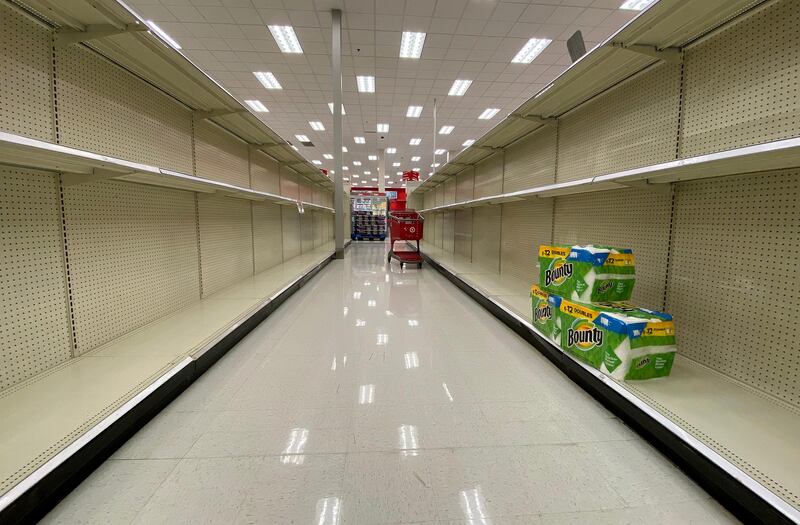SALT LAKE CITY — When the coronavirus outbreak first began to spread across the Beehive State last spring, consumers stormed grocery stores, scooping up various household staples — particularly toilet paper, paper towels and disinfectant wipes.
That led to shortages and eventual rationing of some products by retailers, struggling to keep up with demand.
More recently, some warehouse retailers and other purveyors of consumer goods report the demand is still high, though not quite to the extent as before. The reason for the steady supply on the shelves has something to do with the lessons learned from the initial episode of unexpectedly high demand overwhelming what had typically been an adequate supply chain.
“Retailers are being quicker to limit purchases of items if they see the beginnings of what may look like consumer hoarding,” explained Dave Davis, president and chief legal officer for the Utah Food Industry Association. “That is initially what kind of caught us off guard (before), so there wasn’t much limiting of purchasing and that sort of exacerbated the hoarding effect.”
While local chains are not seeing any shortages, some are being proactive with some paper goods and cleaning supplies, according to Aubriana Martindale, corporate affairs manager for Smith’s Food and Drug.
“To ensure all customers have access to what they need, we’ve proactively and temporarily set purchase limits on certain products to two per customer, including bath tissue, paper towels, disinfecting wipes and hand soap,” she said. “These purchase limits apply in-store as well as to e-commerce orders.”
Utah-based grocery chain Harmons said in a statement that it has yet to experience any shortages either, so far this fall.

Davis said the industry has also undertaken a public service campaign to urge consumers to be “responsible” shoppers.
“One of the things that we just encourage people to do is think in terms of a two-week supply. So when you go shopping, you shouldn’t be buying more products than what you will need for the next couple of weeks,” he said. “Don’t try to stock up on meat or eggs or things like that to last for a month or two months. The reason why that’s important is you’ll be leaving behind some products that will be available to others that may be in need. So take care of your friends and neighbors, and don’t hoard products that you’re not going to need in the next couple of weeks.”
When asked about the well-known local custom of collecting food and household necessity items in the event of a disaster, he said in this unique pandemic situation, consumers have to be more considerate of those around them.
“We all have a responsibility to do our best to think of others in this circumstance. There are some cultural things that are associated with being here in Utah, and even some religious guidance about getting supplies of food and things like that,” Davis said. “Right now, in the midst of a pandemic, is not the time to see if you can get your year supply of something. Right now, when supply chain is being taxed, is the time to think about your friends, think about your neighbors and understand that if in fact you’re hoarding products, these products are not going to be available for your friends and neighbors, and many of those are people that are at risk as well.”
He noted that one thing retailers determined in the early months of the outbreak and subsequent shortages was how to weather challenges and to be better prepared.
“One of the things we have learned in the food industry is that our supply chain is pretty robust and pretty resilient,” he said. “Even during the height of the time when shortages were happening — even at those times, nobody was in danger of going without.”
While some stores are running low on various staples, such as paper products, consumers have been able to find what they wanted with a little effort.
“It was sparse but I got some (toilet paper),” said Riverdale resident Tricia Freeman, who was shopping a big box store. “I ordered it online today and picked it up (in store).”
She was also able to find paper towels, though the supply was admittedly low.
“There were few, but there was some on the shelf so I grabbed a two-pack,” she added. “I was able to find both (products) on the shelf today, but there was literally slim pickings.”
She said some other items like baking flour were also in relatively short supply. For her part, Freeman was at a loss to explain the unusually high demand.
“I don’t know if this is COVID-related because cases went up or because of the election,” she said. “It’s all seems pretty reactionary.”


